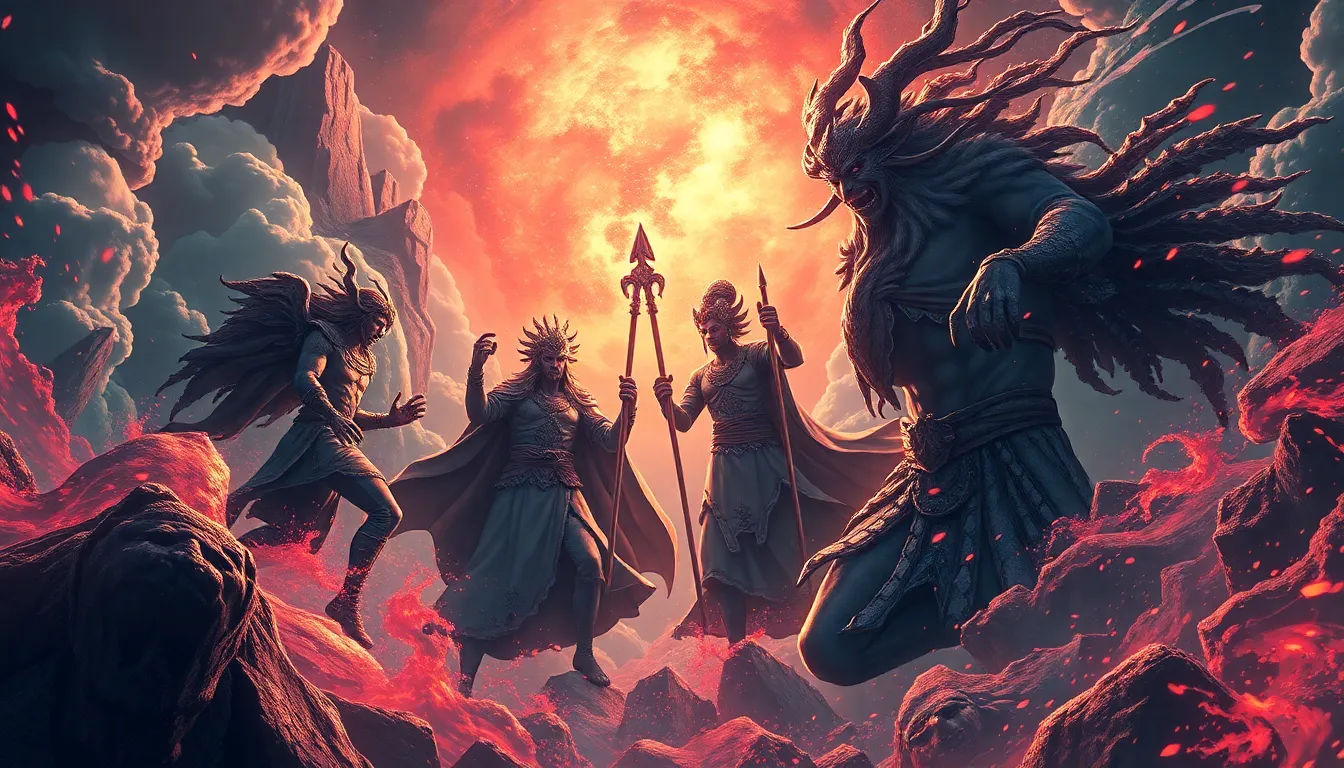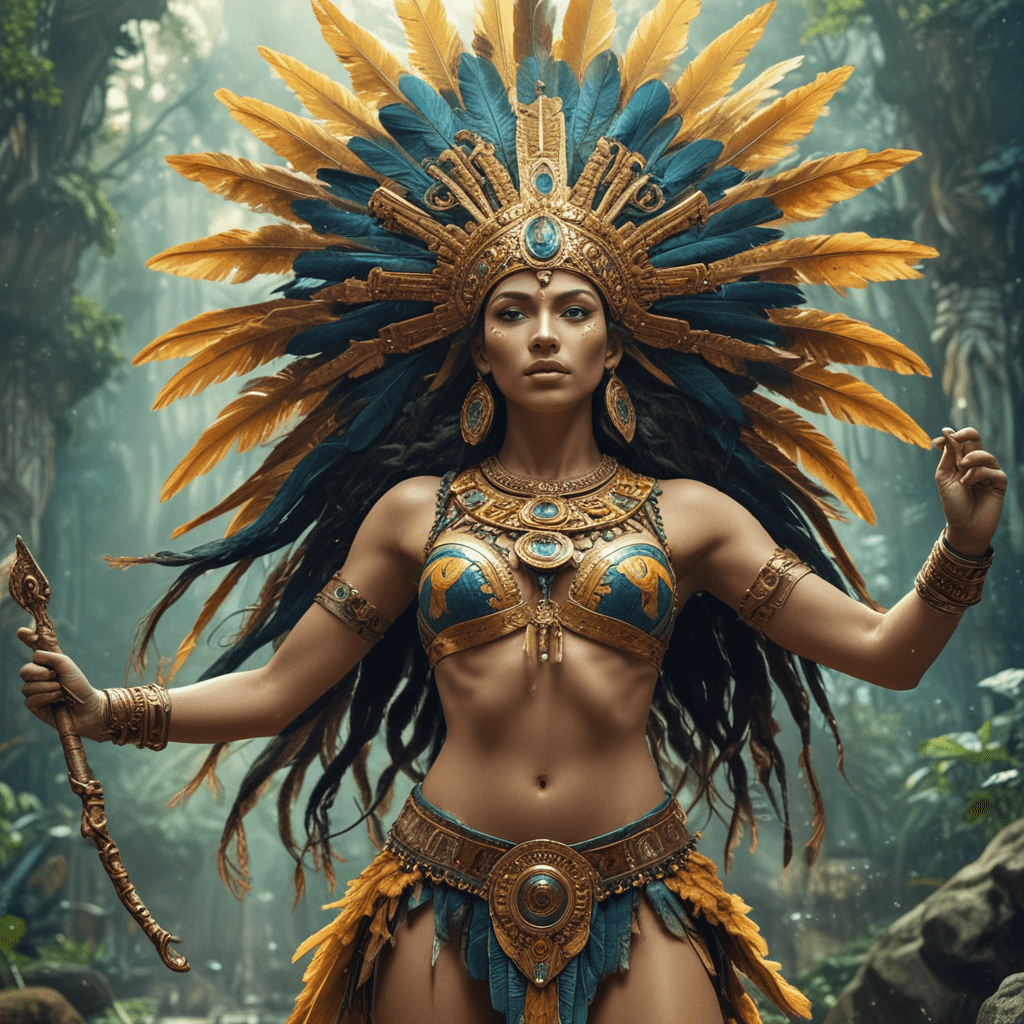Cultural Heroes: The Myths That Challenge the Status Quo
I. Introduction
Cultural heroes are figures whose actions, beliefs, and narratives resonate deeply within a society, often representing ideals that challenge prevailing norms. They emerge from the fabric of mythology, embodying the aspirations and struggles of their communities. Myths play a critical role in shaping cultural identity, providing narratives that help individuals make sense of their world and their place within it. This article will explore the function of cultural heroes and the myths surrounding them, focusing on how these figures challenge the status quo and inspire societal change.
II. The Role of Myths in Shaping Culture
Mythology encompasses the stories and legends that a society holds dear, often reflecting its values, beliefs, and history. Myths serve several important functions:
- Explanation of Existence: They provide explanations for natural phenomena and human experiences.
- Value Transmission: Myths convey moral lessons and cultural values from one generation to the next.
- Identity Formation: They help communities form a collective identity and a shared sense of purpose.
Examples of historical myths include the tales of ancient Greek heroes like Hercules, whose feats symbolize strength and perseverance, and the legends of Native American figures who embody the wisdom and harmony with nature. These stories continue to influence modern perspectives, shaping societal values around resilience, justice, and community.
III. Characteristics of Cultural Heroes
Cultural heroes often possess a set of defining traits that elevate them from ordinary individuals to iconic figures:
- Courage: They face adversity head-on, often risking their lives for their beliefs.
- Empathy: They demonstrate a deep understanding of the struggles of others.
- Vision: They possess a clear vision of a better future and inspire others to pursue it.
The journey of a cultural hero typically follows a transformative arc, moving from an ordinary existence to extraordinary achievements. This journey not only captivates audiences but also serves as a blueprint for others to follow. In many cases, cultural heroes become symbols of national identity, embodying the values and aspirations of their people.
IV. Case Studies of Cultural Heroes
Several individuals stand out as cultural heroes, each representing unique narratives that challenge the status quo:
A. Nelson Mandela: The Myth of the Freedom Fighter
Nelson Mandela’s journey from prisoner to president is a testament to the power of perseverance and resilience. His fight against apartheid in South Africa not only liberated his nation but also inspired global movements for justice and equality.
B. Frida Kahlo: The Icon of Feminine Resilience
Frida Kahlo’s art and life story challenge traditional notions of femininity and beauty. Through her vivid self-portraits, she explores themes of identity, pain, and empowerment, making her a symbol of feminist resilience.
C. Martin Luther King Jr.: The Dreamer Who Changed a Nation
Martin Luther King Jr.’s vision of equality and justice for all Americans challenged the deeply entrenched racial norms of his time. His use of nonviolent protest and powerful rhetoric galvanized a movement that reshaped the civil rights landscape in the United States.
V. The Power of Storytelling in Hero Myths
Storytelling is integral to the formation and perpetuation of hero myths. The narrative structure of these myths often includes:
- The Call to Adventure: The hero is called to leave their ordinary world behind.
- The Trials and Challenges: The hero faces obstacles that test their resolve.
- The Transformation: The hero emerges changed, often with newfound wisdom.
Through storytelling, cultural values are reinforced and passed down through generations. Folklore and oral traditions play a crucial role in preserving these narratives, ensuring that they remain relevant and impactful.
VI. Challenging the Status Quo: Myths That Inspire Change
Many myths disrupt traditional norms and encourage societal change:
- The Myth of the Rebel: Figures like Rosa Parks and Che Guevara exemplify resistance against oppressive systems.
- The Myth of Innovation: Innovators like Steve Jobs represent the idea of challenging existing paradigms through creativity and technology.
Cultural heroes often serve as catalysts for social movements, inspiring individuals to question injustices and pursue change. These myths encourage critical thinking and innovation, empowering people to envision a different future.
VII. The Intersection of Myth and Modernity
As society evolves, so do the myths that shape it. The intersection of technology and media has created new opportunities for myth-making:
- Digital Storytelling: Social media platforms allow for the rapid dissemination of heroic narratives.
- Contemporary Cultural Heroes: Figures like Malala Yousafzai and Greta Thunberg have emerged as symbols of activism in the digital age.
While these developments present challenges, such as the potential for misinformation, they also offer opportunities for new, inclusive narratives that resonate with diverse audiences.
VIII. The Critique of Cultural Heroes
Despite their inspirational qualities, cultural heroes are not without critique:
- Idealization: The tendency to idealize heroes can distort their true nature and contributions.
- Flaws and Failures: Many heroes have complex legacies, and their flaws can overshadow their achievements.
- Hero Worship: Unquestioning admiration can lead to a lack of critical engagement with their actions and beliefs.
Recognizing the complexity of heroism is essential to understanding their true impact on society.
IX. The Future of Cultural Heroes and Myths
As we look to the future, several trends may shape the emergence of new cultural heroes:
- Globalization: The interconnectedness of the world may lead to shared narratives that transcend borders.
- Inclusivity: There is a growing recognition of the need for diverse voices in myth-making, ensuring that all communities are represented.
Inclusive narratives will play a critical role in shaping future myths, fostering a sense of belonging and understanding across cultures.
X. Conclusion
Cultural heroes and the myths surrounding them are vital in challenging norms and inspiring change. As society continues to evolve, the narratives we create and share will shape our collective identity and values. Understanding the dynamics of heroism and mythology allows us to critically engage with these figures and the impact they have on our world. The ongoing relevance of cultural heroes as agents of change underscores the power of storytelling and the enduring quest for a better future.


